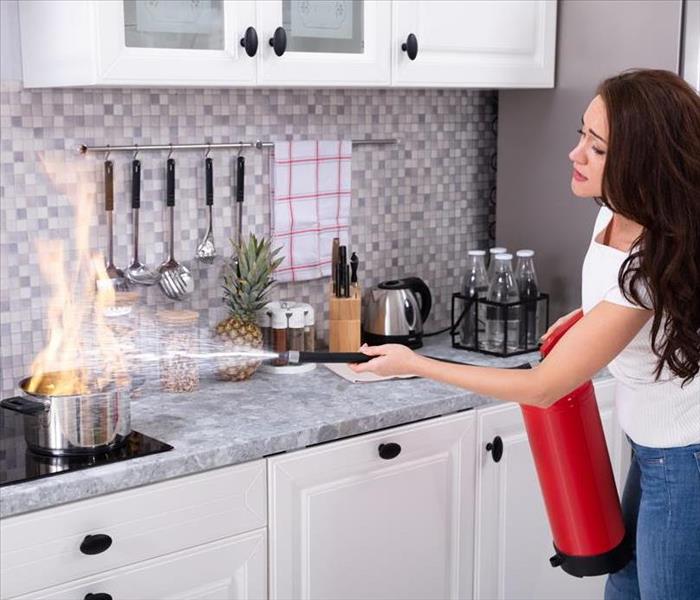Keep Your Home and Family Safe From a Grease Fire
1/6/2022 (Permalink)
 Follow these tips to prevent Grease Fire in your Bath, NC house. If any doubt arises, please contact us.
Follow these tips to prevent Grease Fire in your Bath, NC house. If any doubt arises, please contact us.
A lot of house fires happen in the kitchen, and a large percentage of these happen because of the grease, fat, or oil used during cooking. It doesn't take long for a grease fire to spread from the kitchen to the rest of the home, so a fast reaction is important. However, you can't treat a grease-based fire the same way you'd respond to other fires.
How To Prevent and Respond to a Grease Fire
If you pour water onto a grease fire, the liquid splashes and spreads, carrying the flames with it. Before you break out your deep fryer, make sure you understand how to prevent fire damage in your Bath, NC kitchen:
Keep Your Work Area Clean
Store combustible materials, such as flour containers and dishcloths, away from your cooking space. Wipe up spills when pots boil over and remove grease buildup from the stovetop and oven. Recipe books, pieces of paper, and other items that tend to gather on the countertops should be cleared away before you start cooking.
Never Leave Cooking Unattended
A pan of vegetables warming in butter can become a fire hazard if the temperature reaches just 300 degrees Fahrenheit and you aren't on hand to turn the heat down. The various fats, oils, and greases you use in cooking all have different flashpoints, so watch for smoking, spitting, and boiling to determine when you should reduce the heat.
Prepare for Grease-Based Fires
Fires require oxygen, so the fastest way to put out a grease-based fire is to cover the entire thing with a metal lid or a baking sheet. Depending on the size of the flames, you may need to use some metal tongs to hold the lid in place. Glass or ceramic lids could shatter.
Store a container of baking soda or salt next to your cooking area. You'll need a lot to put out the fire; a #10 can is about the right size. Do not use flour, baking powder, or other powders because these are often combustible and could cause further damage.
Keep a Class K fire extinguisher in the kitchen. This extinguisher is designed specifically for cooking fires. You cannot substitute other extinguishers because some of those are water-based. Reach out to your local fire department for more information on fire extinguishers, such as how to use them and how often to arrange maintenance for your extinguisher.
Practice Safety Habits
Remember to never use water for grease-based fires; don't put your burning pan into the sink. If you can't put the fire out with a pan lid, baking soda, or extinguisher, contact 911. For the best results, teach your family members how to respond to grease-based fires and how to use the fire extinguisher.
Kitchen fires, and the grease fire specifically, can be very scary. Make sure you and everyone in your family know how to prevent fires, how to respond in case of a fire, and how to use the fire extinguisher. If you do experience a fire in your home, fire cleanup and restoration professionals can help you recover.






 24/7 Emergency Service
24/7 Emergency Service